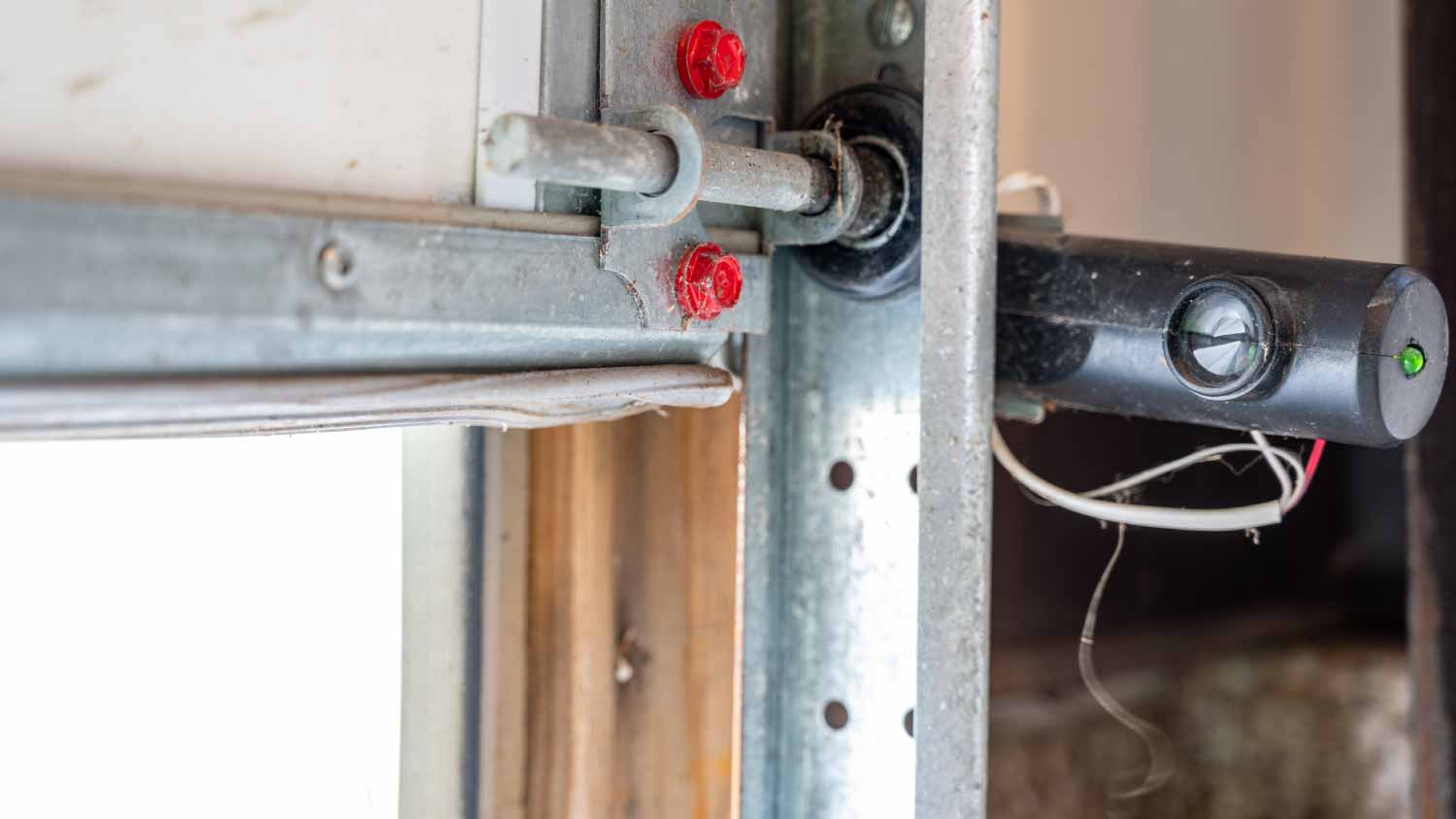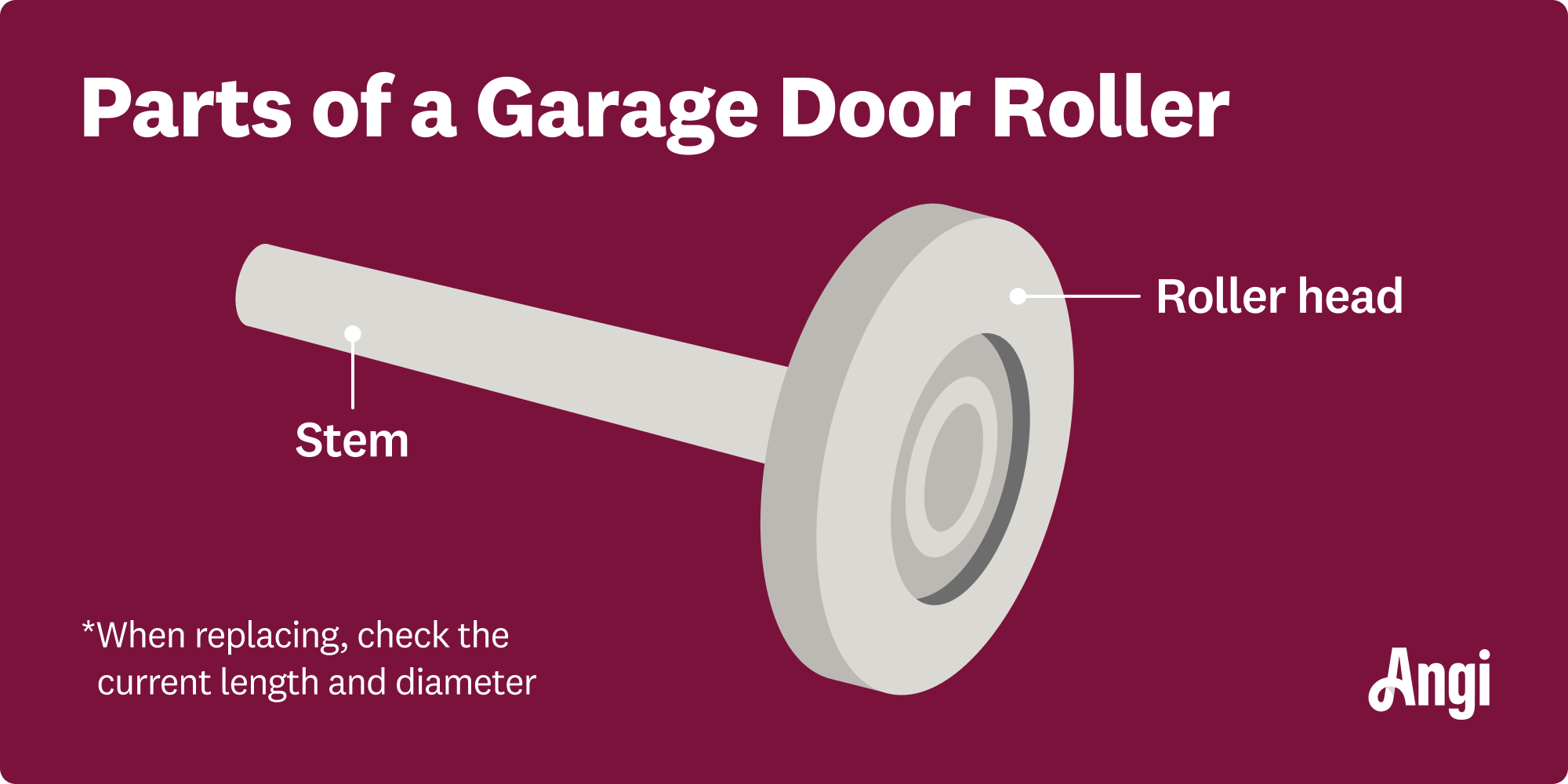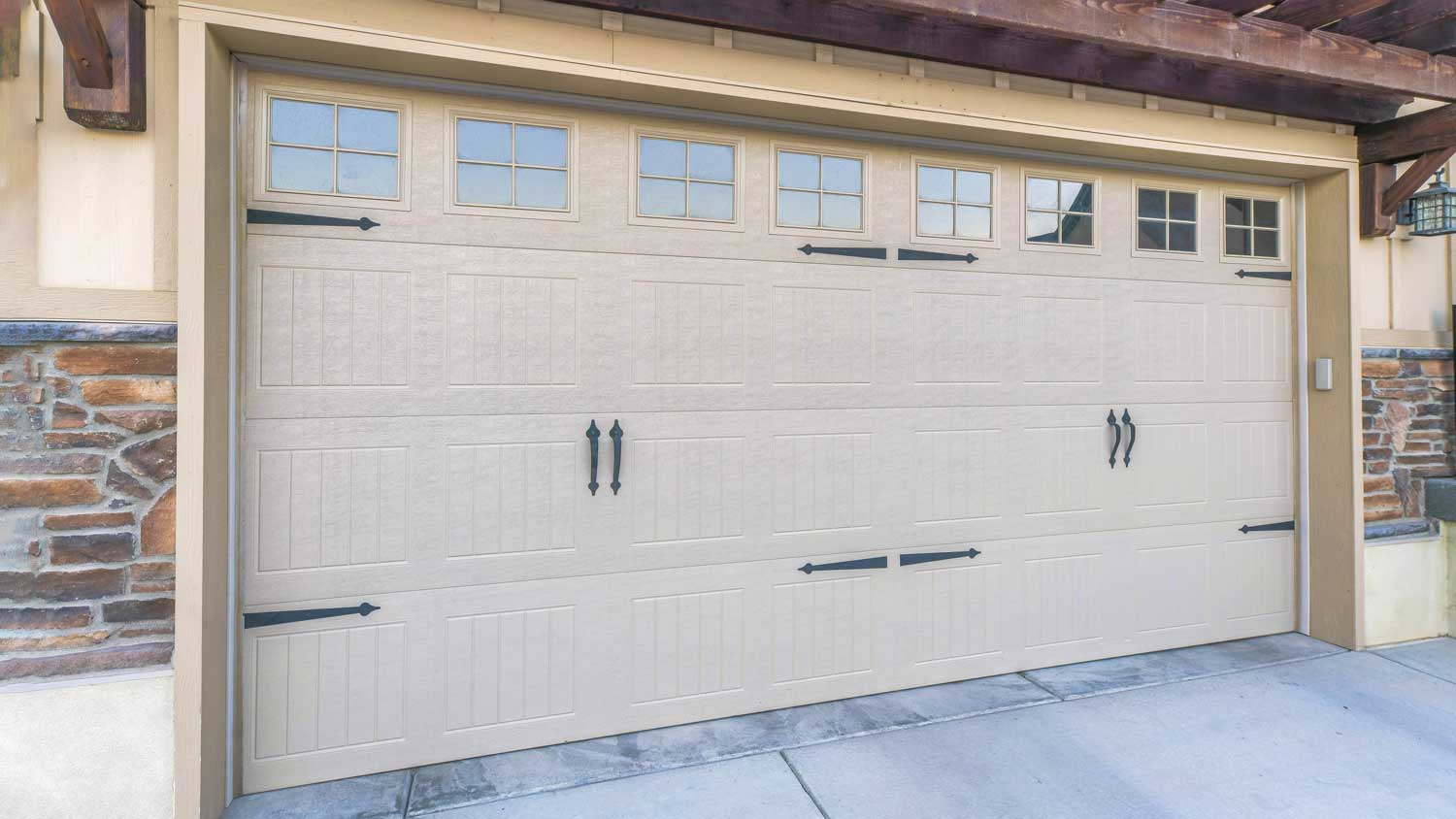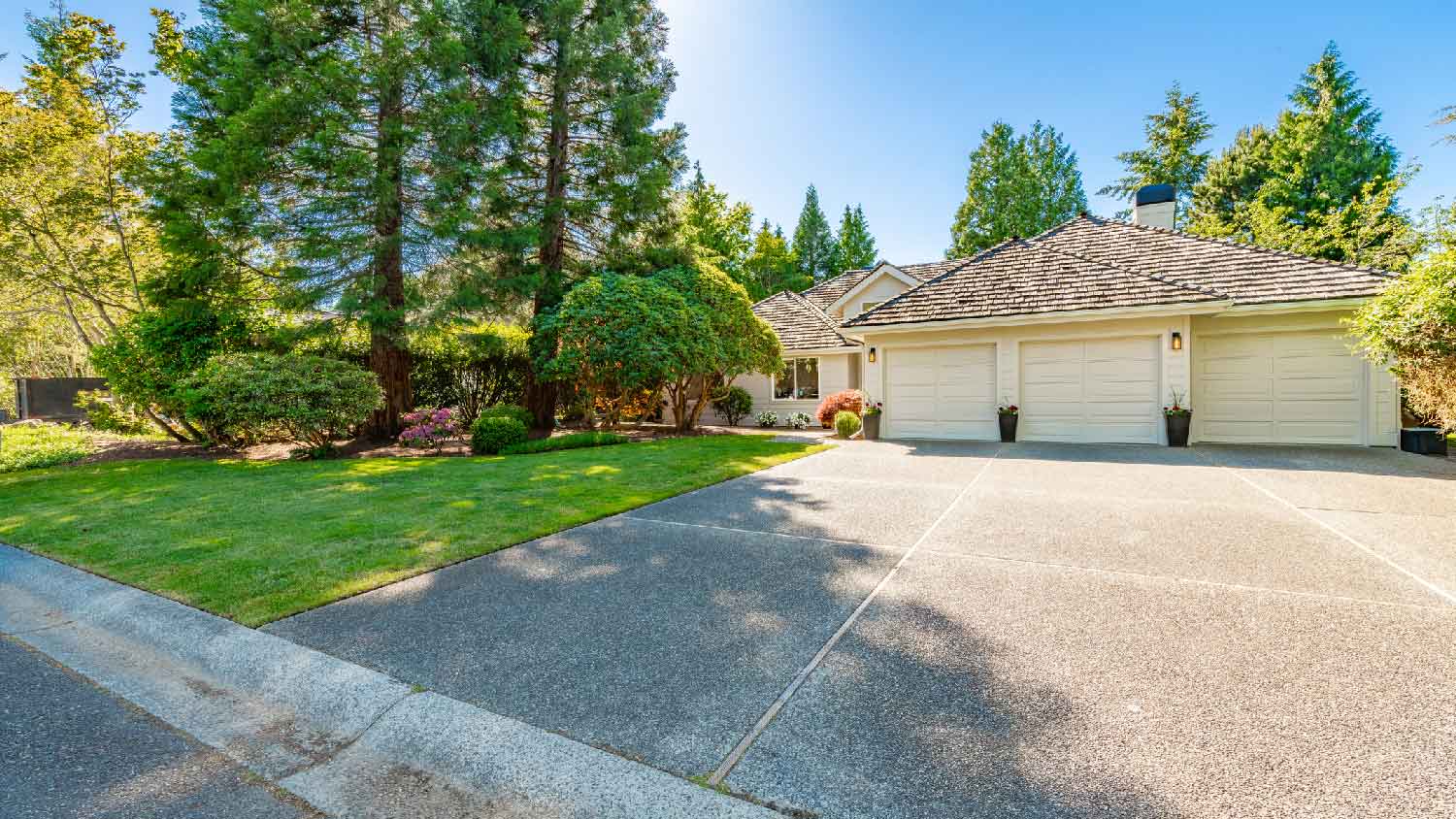How Much Does a Garage Door Roller Replacement Cost?
While the average homeowner spends roughly $200 to replace garage door rollers, the specifics of a garage door design could bring the price anywhere from $150 to $250.
.jpg?impolicy=leadImage)
.jpg?impolicy=leadImage)
The average garage door roller replacement cost is $200. However, the price of getting things rolling again with these new parts can range between $100 and $300 based on factors that include your garage door system's design and the quality of the rollers you select.
Garage Door Roller Cost Factors
While replacing garage door rollers is considered one of the most affordable ways to maintain your garage door system, pricing can vary for homeowners.
Material
| Material | Average Cost Range |
|---|---|
| Nylon | $10–$20 |
| Steel | $15–$30 |
Diameter
| Diameter Size (Inches) | Average Cost Range |
|---|---|
| 1’ ¾” | $10–$13 |
| 1’ ⅞” | $12–$25 |
| 2’ | $13–$30 |
Number of Rollers
The cost to replace garage door rollers depends on the number of rollers needed for the project. In general, a standard residential garage door contains 10 to 12 rollers. When shopping for garage door rollers at hardware stores, prices can range from $3 to $6 per individual roller to $20 to $40 for packs of 10 rollers. If you're doing a full roller replacement, the cost for materials alone can range from $20 to $60. When replacing rollers on a single panel instead of the full door, this generally requires two to three rollers that can cost anywhere from $10 to $30 in total.
Labor
Most homeowners don't feel comfortable replacing garage door rollers themselves because they don't want to risk incorrectly installing these critical components for allowing a garage door to move up and down. With most local garage door companies charging between $75 and $150 per hour, the cost to fully or partially replace garage door rollers with parts and labor included ranges from $100 to $300.
Garage Door Roller Replacement Ongoing Costs

While maintaining newly installed garage door rollers is breezy, homeowners should know that regular lubrication is important to prevent rollers from becoming scratched or stuck with daily use of a garage door. A can of lubricant costs $7 to $10 at a local hardware store. While rollers should be lubricated at least once a year, extra product should be applied whenever there is squeaking or visible friction when the rollers are moving through the garage door track.

DIY Garage Roller Repair vs. Hiring a Pro
Whether you pick up some rollers at the local hardware store on your own or call up a local garage door repair expert to handle the job, this is a budget-friendly task that goes a long way for preserving the function of your garage door. How much does it cost to replace garage door rollers yourself?
Compared to the $100 to $300 charged for professional replacements, DIY garage roller replacement can cost as low as $30 to $60. However, a homeowner will need to spend time researching the correct roller for their specific garage door. This will require a trip to the store or time spent waiting for an online order to arrive.
Homeowners choosing the DIY path will also need to feel comfortable unbolting their garage door hinges to physically replace their rollers. If your garage door has a torsion spring, the task is more complicated because you'll need to keep the door open to keep tension off the spring. Due to the risk of a spring snapping, this task is best left to a professional.
Cost of Common Garage Door Roller Replacement Add-Ons
If you hire a garage door pro to replace your door rollers, they may be able to provide a number of safety and maintenance services that can help you to keep your garage door running smoothly to avoid garage door repair costs down the line. Most garage door companies offer full inspection and maintenance visits covering all garage door parts. Consider asking about these add-on services:
Garage door tune-up cost: $100–$240
Garage door leveling cost: $100–$190
Cost to straighten bent garage door tracks: $75–$125
Cost to adjust garage door spring tension: $100–$300
Cost to repaint garage doors: $300–500
Cost to tighten nuts and bolts: $75–$89
How You Can Save Money on Garage Door Roller Replacement
Try these tips to bring garage door roller replacement cost down:
If a garage door company charges per hour, you can cut costs by cleaning your rollers and track ahead of time to reduce the amount of time your pro will spend prepping.
You might be able to save money by purchasing rollers on your own instead of letting your repair person charge you for them.
Shop around for garage door tune-up packages that include roller inspection and replacement.
How Angi Gets Its Cost Data
Home is the most important place on earth, which is why Angi has helped more than 150 million homeowners transform their houses into homes they adore. To help homeowners with their next project, Angi provides readers with the most accurate cost data and upholds strict editorial standards. We extensively research project costs to develop the pricing data you see, so you can make the best decisions for you and your home. We rely on reputable sources, including the U.S. Bureau of Labor Statistics, academic journals, market studies, and interviews with industry experts—all to ensure our prices reflect real-world projects.
Want to help us improve our cost data? Send us a recent project quote to costquotes@angi.com. Quotes and personal information will not be shared publicly.
Frequently Asked Questions
Garage door rollers should stay working for 10 to 20 years when properly maintained. Frequent use of a garage door can contribute to premature wear and tear that causes rollers to wear out in just six to 10 years. Along with your garage door's tracks, rollers should be cleaned and lubricated at least once a year for optimal performance.
Visible signs of wear and tear that are telling you it's time to replace your garage door rollers include cracking, chipping, and bending. You may also hear rattling when the garage door is in motion if the connection between the roller's rod and wheel is loose. Worn-out garage door rollers can also cause squeaking and grinding as the garage door moves up and down the tracks. In addition, a garage door's operation may be slower or choppy. If you're troubleshooting why your garage door won't open, clogged debris stopping rollers from moving on the track could be to blame.
In addition to being less expensive, nylon garage door rollers are actually much quieter than steel rollers. However, many homeowners find that they wear out prematurely compared to steel. In general, more expensive steel rollers are more durable. However, their nosiness can make them less than ideal for garages that are located beneath a home's bedrooms.
While not necessary, replacing rollers and hinges at the same time can be smart if both have similar levels of wear and tear. This can ensure that your new rollers have a chance to work optimally once they're installed. If you're unsure if you want to replace both, ask your garage door repair technician to show you the state of the hinges once the rollers are removed.















